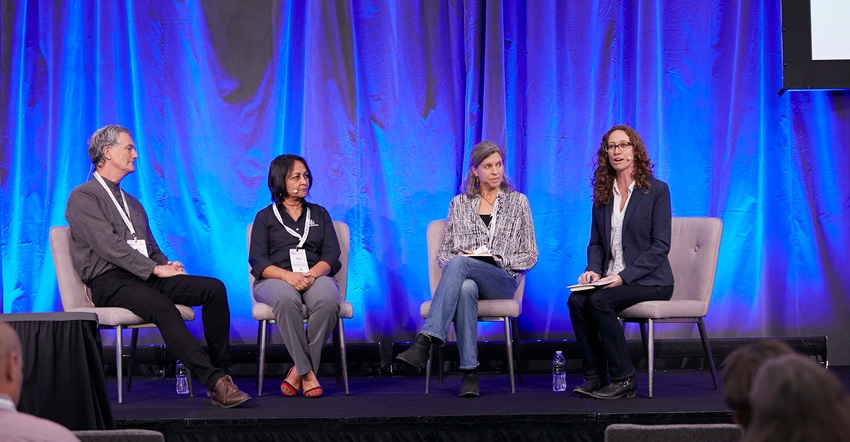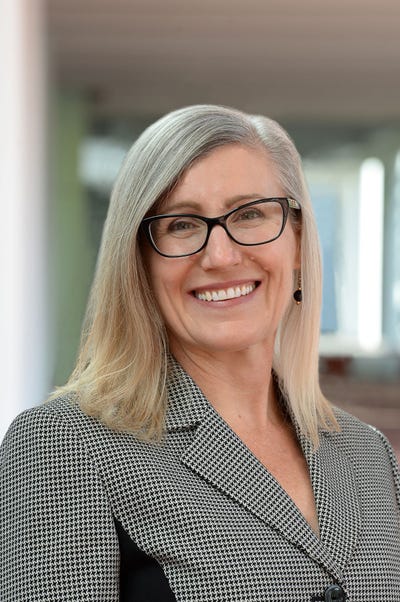Exploring the impact of climate change on the nutraceutical supply chain
Coverage of the impact of climate change on the ecosystem is raising awareness of how the decisions consumers make every day can have an impact much greater than their own footprint.

Coverage of the impact of climate change on the ecosystem is raising awareness of how the decisions consumers make every day can have an impact much greater than their own footprint. This awareness is spreading across businesses and the natural products industry.
At this year’s SupplySide West, the Climate Collaborative (climatecollaborative.com) presented two thought leadership sessions at the SupplySide Central stage, delving into the ways that brands and suppliers can make a difference. The Climate Collaborative is a community of manufacturers, retailers, distributors, brokers, suppliers and other businesses across the natural products industry working to take action to reverse climate change. Erin Callahan, director of the Climate Collaborative, worked with SupplySide to develop the panel discussions, honing in on topics from farming and community support to the challenges facing a transformation of agriculture.
Callahan kicked off the session Catalyzing Climate Action in the Natural Products Industry with an overview of the nine commitment areas. These include agriculture, energy efficiency, food waste, forests, packaging, policy, renewable energy, short-lived climate pollutants and transportation. She noted a total of 435 companies have made 1,700 total commitments. Active participating companies included the two represented on stage: MegaFood and Herb Pharm.
Sara Newmark from MegaFood opened up the dialogue noting how the company has a big vision to help revolutionize the agricultural system, which is all tied to climate. She explained how the company operates with purpose and looks to shift systems that it doesn’t have direct control over. Her opening remarks were echoed by Matt Dybala of Herb Pharm; the company actively grows and sources more than 200 botanicals, and has seen a great deal of impact due to climate change. As a farmer himself, he cited changes in the local climate around drought and the need to improve soil health. What they both agreed on was the critical importance of supporting the farmers in this transition.
Newmark also emphasized the importance of shifting agricultural systems to support carbon drawdown. And that means starting from the farm level. To accomplish this, Dybala added, there can be a transition toward regenerative agricultural practices and partnerships at the farm level. This can include learnings from groups such as Demeter or Rodale, and building partnerships with certifiers and other farming support organizations.
The importance of partnerships was a cornerstone of the second session, Sourcing for Impact. Holly Johnson from the American Herbal Products Association (AHPA) and Ann Armbrecht with the American Botanical Council’s Sustainable Herbs Program moderated a discussion with BI’s Rupa Das and Traditional Medicinals’ Josef Brinckman.
Both Das and Brinckman recalled their path toward sustainability in the supply chain, and how it started from the quality assurance perspective. Brinckman noted his curiosity about batch-to-batch uniformity in complex mixtures lead to investigating the supply chain, which broadened the existing emphasis at Traditional Medicinals around relationship buying into truly investing in the farmer relationships.
Similarly, Das emphasized the “natural” terminology in the natural products industry, which means that things can happen related to climate, crops and quality. She added the rule is to mitigate those things from changing drastically; in her case, she looks to understand where the ingredients are coming from, the factors affecting them and, most importantly, the farmers and what tools they need.
In fact, all the panelists emphasized the importance of thinking beyond just sustainability as it relates to the plants, and into the economic and social impact that the industry has. Therefore, involvement all the way back to the farmer level and ensuring they have basic standards of living and can improve their own lives benefits all parts of the supply chain. Further, developing those partnerships means understanding the cyclical nature of ingredient supply and demand and looking to smooth that out to some level.
The speakers emphasized the importance of partnership in all aspects of the supply chain. It could mean partnering with a friendly competitor to ensure that a high value, certified crop receives that added value at point of purchase, incentivizing the farmer to continue investing in the partnership. It could also offer more avenues of income, building trust over time.
As Callahan noted in the first session, the concept of tackling climate change in the natural products industry can be overwhelming. The importance of partnerships cannot be over-emphasized; companies can get involved with the Climate Collaborative for free—it is designed as an enabling mechanism to help advance bigger goals. Companies that are interested in learning more are encouraged to visit climatecollaborative.com.
About the Author(s)
You May Also Like






.png?width=800&auto=webp&quality=80&disable=upscale)